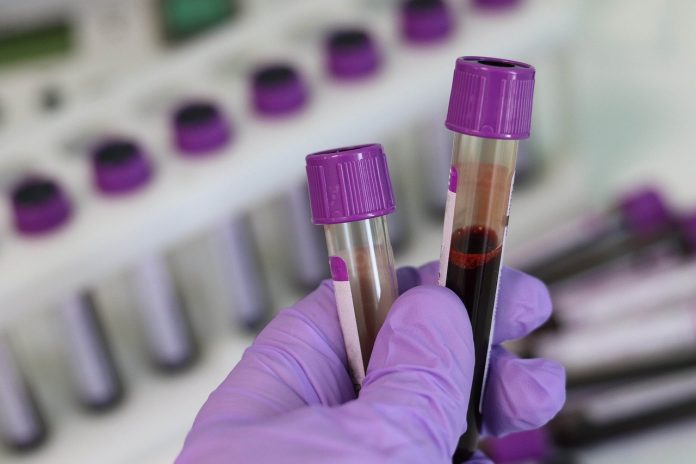
In a new study, researchers found has discovered antibodies in the blood of recovered COVID-19 patients that provide powerful protection against SARS-CoV-2, the coronavirus that causes the disease, when tested in animals and human cells.
The research offers a paradigm of swift reaction to emergent and deadly viral pandemic and sets the stage for clinical trials and additional tests of the antibodies, which are now being produced as potential treatments and preventives for COVID-19.
In principle, injections of such antibodies could be given to patients in the early stage of COVID-19 to reduce the level of virus and protect against severe disease.
The antibodies also may be used to provide temporary, vaccine-like protection against SARS-CoV-2 infection for healthcare workers, elderly people, and others who respond poorly to traditional vaccines or are suspected of recent exposure to the coronavirus.
The research was conducted by a team led by Scripps Research.
Developing a treatment or vaccine for severe COVID-19 is currently the world’s top public health priority.
Globally, almost 8 million people have tested positive for SARS-CoV-2 infection, and more than 400,000 have died of severe COVID-19. The daily toll of new infections is still rising.
One approach to new viral threats is to identify, in the blood of recovering patients, antibodies that neutralize the virus’s ability to infect cells.
These antibodies can then be mass-produced, using biotech methods, as a treatment that blocks severe disease and as a vaccine-like preventive that circulates in the blood for several weeks to protect against infection.
This approach already has been demonstrated successfully against the Ebola virus and the pneumonia-causing respiratory syncytial virus, commonly known as RSV.
In the study, the team took blood samples from patients who had recovered from mild-to-severe COVID-19.
In parallel, scientists at Scripps Research and IAVI developed test cells that express ACE2, the receptor that SARS-CoV-2 uses to get into human cells.
In a set of initial experiments, the team tested whether antibody-containing blood from the patients could bind to the virus and strongly block it from infecting the test cells.
The scientists were able to isolate more than 1,000 distinct antibody-producing immune cells, called B cells, each of which produced a distinct anti-SARS-CoV-2 antibody.
The team obtained the antibody gene sequences from these B cells so that they could produce the antibodies in the laboratory.
By screening these antibodies individually, the team identified several that, even in tiny quantities, could block the virus in test cells, and one that could also protect hamsters against heavy viral exposure.
All of this work—including the development of the cell and animal infection models, and studies to discover where the antibodies of interest bind the virus—was completed in less than seven weeks.
If further safety tests in animals and clinical trials in people go well, then conceivably the antibodies could be used in clinical settings as early as next January, the researchers say.
In the course of their attempts to isolate anti-SARS-CoV-2 antibodies from the COVID-19 patients, the researchers found one that can also neutralize SARS-CoV, the related coronavirus that caused the 2002-2004 outbreak of severe acute respiratory syndrome (SARS) in Asia.
One author of the study is Dennis Burton, Ph.D., the James and Jessie Minor Chair in Immunology in the Department of Immunology & Microbiology at Scripps Research.
The study is published in Science.
Copyright © 2020 Knowridge Science Report. All rights reserved.



